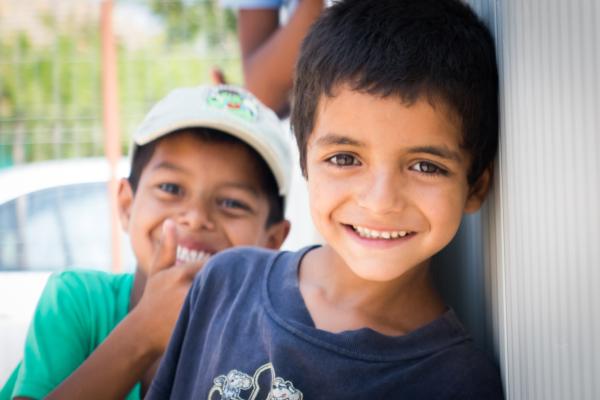What would you say if people made decisions about you without consulting you? It would be a violation of your rights. The same applies to children; this right is specifically set out in Article 12 of the Convention on the Rights of the Child: “the right to express those views freely in all matters affecting the child, the views of the child being given due weight”.
“Terre des hommes works at both micro and macro levels to ensure that children's right to be heard is fulfilled, especially the most vulnerable,” explains Kristen Hope, Tdh Research and Advocacy Adviser. But how can we give children and young people a voice? How can we work not only for them but also with them?
Asking children what they need
In the Bacau region of Romania, the children’s priorities are to be surrounded by caring people, to have running water in their homes, toilets in their schools and school buses that are in better condition. Tdh local team has gathered a list of their needs so that we can adapt our response.
“The families say this is the first time anyone has asked the children themselves what their school or community needs. Children often demonstrate great maturity; they know what they want, and if we listen to them more carefully, we can help them grow,” says Mara Matei, SHINE project manager.
Through its SHINE project in Bacau County in Romania, one of the poorest regions in Europe, Tdh improves the lives of disadvantaged children by investing in education, health, and social services and infrastructure.
The art of stimulating participation
The YouCreate project in Ukraine and Greece allows children and adolescents affected by migration or displacement to express themselves through art. This boosts their well-being and resilience, while allowing them to learn more about their rights, the risks associated with migration and the support services available to them.
A young Syrian woman, who was very shy and withdrawn at the start of the project, said: “This methodology had a positive impact on me. It helped me to end my isolation and find a different way to overcome the consequences of the war. Now I can talk about my worries. My personality has evolved, and I’ve developed leadership skills.”
Children mobilise against violence
“We want to send a message to our school. Violence is not a symbol of power.” As part of Tdh projects in Egypt, a group of ten girls and boys from a school in Alexandria have come together to create a video that denounces the use of violence and child abuse. It is a way of ensuring their voices are heard by other children as well as by parents and teachers. Watch the video.
Include children's voices in the research
The UN Global Study on Children Deprived of Liberty was published in October this year. It reveals some alarming figures: between 1.3 and 1.5 million children worldwide are deprived of their liberty.
Any study about children and young people must be conducted with them. Terre des hommes has therefore gathered the testimonies of more than 270 children and adolescents who have been detained, so that they too can express their opinions. “Children know more about their own experiences than anyone else. Their opinions and views should be considered when decisions are made about their lives and in policy-making in general,” says Kristen Hope.
Below watch a video with children explaining their rights.
- Zaloguj lub zarejestruj się aby dodawać komentarze
- 2 widoki






